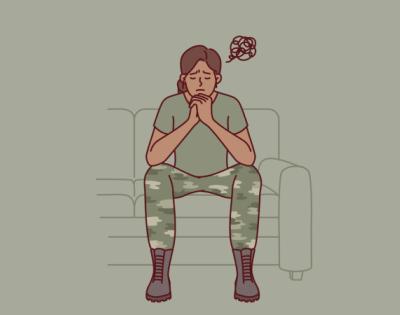
Military Mental Health is a topic that requires deep understanding and compassion, as it encompasses the unique challenges faced by service members, veterans, and their friends and families.
Military family therapy is a specialized form of therapy designed to address the unique challenges faced by military families. These challenges include frequent relocations, deployments, separations, combat stress, and the general demands of military life.
Military family therapists are trained to understand the dynamics of military culture and how it impacts family life. They work with service members, their spouses, children, and extended family members to address issues such as communication breakdowns, adjustment difficulties, trauma, and relationship conflicts. These issues are addressed through evidence-based practices best suited for the needs of the family, such as Cognitive Behavioral Therapy (CBT), Family Systems Therapy, Rational Emotive Behavioral Therapy (REBT), and trauma-focused interventions.
Benefits of Military Family Therapy:
- Improved Communication: Family therapy helps family members communicate more effectively, enhancing understanding and reducing misunderstandings.
- Enhanced Coping Skills: Military families face unique stressors, and therapy can equip them with coping strategies to better handle deployments, relocations, and other challenges.
- Stronger Relationships: Therapy can strengthen family bonds and promote a greater sense of cohesion, helping families navigate the separations and reunions inherent in military life.
- Addressing Trauma: Military service members and their families may experience trauma related to deployments or other military experiences. Therapy provides a safe space to process these experiences and work through associated emotions.
- Support Network: Family therapy connects military families with a supportive network of professionals who understand their unique circumstances and can provide guidance and resources.
- Promotion of Resilience: Through therapy, families can develop resilience skills that help them adapt and thrive in the face of adversity.
Challenges of Military Family Therapy:
- Frequent Relocations: Military families often move frequently, which can disrupt therapy continuity and make it challenging to establish a therapeutic relationship.
- Deployment Stress: Deployments can strain family relationships and make it difficult to engage in regular therapy sessions, especially if the service member is the primary participant.
- Stigma: Some military members or their families may be hesitant to seek therapy due to concerns about stigma or career implications.
- Access to Services: Depending on the location and resources available, military families may face challenges accessing quality therapy services, particularly in remote or overseas locations.
- Family Dynamics: Military families may have unique dynamics shaped by the demands of military life, which can require specialized therapeutic approaches and understanding from the therapist.
- Confidentiality Concerns: Service members may have concerns about the confidentiality of therapy sessions, particularly if they worry about the impact on their military career.
Despite these challenges, military family therapy can be highly effective in supporting the mental health and well-being of service members and their families, helping them navigate the unique challenges of military life and build stronger, more resilient relationships.
Mental Health Resources
The Village offers specialized care for active-duty members and veterans. Providers who have special training in military issues can be found here. There are also several current mental health resources available for active members and veterans in the military in the area and on a national scale. Here are some options:
- Military OneSource, a comprehensive military resource website, offering 24/7 support for service members, spouses, and their families.
- Operation Homefront, a nationally recognized nonprofit organization that supports military families, providing financial assistance, housing support, and other programs to help military families thrive.
- Star Behavioral Health, a collaboration between the Military Family Research Institute at Purdue University and the Center for Deployment Psychology who connects military service members and their families with licensed behavioral health professionals who have specialized training in military culture and treatments shown to be effective with military families

Taylor is an outpatient clinician based in the Bismarck office who is passionate about helping individuals with disabilities and those profoundly impacted by trauma. With a strong focus on meeting clients where they are in their unique journeys, Taylor utilizes a variety of approaches, including Cognitive Behavioral Therapy (CBT), Rational Emotive Behavioral Therapy (REBT), and trauma-informed care, to effectively support personal growth and resilience. Additionally, Taylor incorporates Polyvagal Theory and sensory-focused interventions to better understand and treat the effects of stress on clients’ overall well-being.